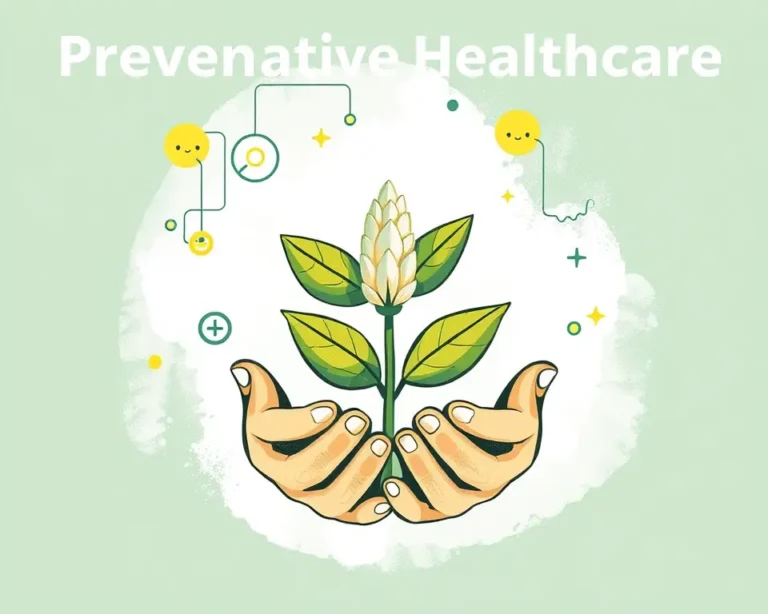The NHS is committed to improving public health and preventing illness through various initiatives. Early detection and support for individuals to take proactive steps are central to these programs. It’s truly remarkable to have the opportunity to prevent life-altering conditions through the NHS.
Understanding the NHS Prevention Programme
The NHS Prevention Programme focuses on early disease detection and empowering individuals to manage their health. This involves targeted support to reduce dependency on harmful substances like alcohol and tobacco, as well as weight management services and statin prescriptions to prevent heart attacks. The program prioritizes the early identification of diseases and supports individuals in taking control of their health through supported self-management.
Key Focus Areas
- Smoking Reduction: Smoking is a major driver of health inequalities. The NHS provides access to tobacco treatment services and collaborates with partners to achieve a “smokefree” Lancashire and South Cumbria by 2030.
- Cardiovascular Disease Prevention: Cardiovascular disease is a leading cause of premature mortality. The NHS aims to identify and treat individuals early, ensuring they receive evidence-based care.
- Alcohol Care Teams: By improving treatment and support for individuals with alcohol dependence, the NHS aims to reduce alcohol-related hospital admissions and improve patient outcomes.
- Blood Borne Virus Testing: The NHS provides funding for opt-out testing in emergency departments in areas with high HIV prevalence rates, expanding testing to include hepatitis B and C.
NHS Screening Programmes: Early Detection is Key
The NHS offers a range of screening programs to detect potential health issues early. These programs include:
Screening in Pregnancy
- Screening for hepatitis B, HIV, and syphilis
- Screening for Down’s syndrome, Patau’s syndrome, and Edwards’ syndrome
- Screening for sickle cell and thalassaemia
- 20-week screening scan for physical development
- Diabetic eye screening for pregnant women with diabetes
Screening for Newborn Babies
- Physical examination
- Hearing screening
- Blood spot test for rare conditions
Other Screening Programs
- Diabetic eye screening: Regular screening for individuals with diabetes to detect diabetic retinopathy.
- Cervical screening: Offered to women and individuals with a cervix aged 25 to 64 to check cervical cell health.
- Breast screening: Offered to women aged 50 to 70 to detect early signs of breast cancer.
- Bowel cancer screening: Screening for early signs of bowel cancer.
- Abdominal aortic aneurysm (AAA) screening: Screening for AAA.
Benefits of Screening
- Early detection of health problems, often before symptoms appear.
- More effective treatment due to early intervention.
- Better informed decisions about health.
- Reduced chance of developing complications.
- Prevention of deaths from certain conditions.
NHS Health Checks: Personalized Prevention
The NHS Health Check program aims to reduce the risk of heart and blood vessel conditions like heart disease, stroke, and kidney disease. These checks are offered every five years to adults aged 40 to 74 without pre-existing vascular disease. They assess risk factors such as:
- High blood pressure
- Smoking
- Cholesterol
- Inactivity
- Harmful drinking
- Obesity
What to Expect During an NHS Health Check
- Risk assessment: Assessing risk factors for various conditions.
- Personalized support: Guidance on lifestyle changes and access to local services.
- Discussion of results: Reviewing results and discussing ways to improve health.
Benefits of NHS Health Checks
- Reduced risk of cardiovascular diseases and other conditions.
- Early detection and treatment of underlying conditions.
- Improved health behaviors and lifestyle choices.
- Lower risk of death and illness in the long term.
The NHS Long Term Plan: A Focus on Prevention
The NHS Long Term Plan emphasizes prevention to help people live longer, healthier lives. This includes:
- Supporting healthier lifestyle choices.
- Treating avoidable illnesses early.
- Funding new evidence-based prevention programs.
- Helping people stop smoking.
- Promoting healthy weight management.
- Ensuring sensible antibiotic use.
- Providing digital tools for self-management.
Key Initiatives
- Making Every Contact Count: Utilizing patient contact and hospital admissions to promote health improvement.
- Targeted Interventions: Addressing risks associated with tobacco, alcohol, and obesity.
- Digital Weight Management Programme: Providing support for adults with obesity and related conditions.
- Alcohol Care Teams: Establishing teams in areas with high alcohol-related harm.
The Importance of Preventative Healthcare
Preventative healthcare is essential for improving population health and reducing disease incidence. By prioritizing prevention, the NHS can:
- Improve individual quality of life.
- Reduce the long-term burden on healthcare resources.
- Lower the need for expensive treatments and hospitalizations.
- Allocate resources more efficiently.
Benefits of Preventative Healthcare
- Improved Population Health: Reducing chronic diseases like diabetes, heart disease, and cancer.
- Enhanced Quality of Life: Preventing diseases and promoting overall well-being.
- Reduced Healthcare Costs: Lowering the need for hospital admissions and complex treatments.
- Mitigating Workforce Shortages: Reducing the burden on frontline staff and optimizing resource allocation.
Health Hubs: Community-Centered Prevention
Health hubs are community-centered initiatives that improve access to healthcare and provide wellbeing support. These hubs offer various services, including:
- Outpatient and vaccination clinics.
- Routine check-ups.
- Mental health and wellbeing support.
- Lifestyle advice and education.
Benefits of Health Hubs
- Improved access to healthcare for underserved communities.
- Early detection and management of health issues.
- Reduced demand on primary and secondary healthcare services.
- Addressing health inequalities.
- Increased confidence in healthcare services.
Challenges and Future Directions
Preventive health services face challenges such as funding constraints and public engagement. To address these, the NHS is investing in outreach and education programs and leveraging innovations like mobile health apps and telemedicine to make services more accessible.
Future Trends in Preventative Care
- Mobile health apps: Providing personalized health information and support.
- Telemedicine: Delivering remote consultations and monitoring.
- Telehealth integration: Connecting patients with healthcare providers remotely.
Success Stories
The NHS Health Check program has shown tangible results. For example, Rajiv, a participant in the program, discovered he had type 2 diabetes and was able to manage his blood sugar levels through diet and exercise, eventually coming off insulin.
Key Outcomes of NHS Health Checks
- Identifying new cases of diabetes, kidney disease, and hypertension.
- Preventing heart attacks and strokes.
- Reaching high-risk groups.
- Reducing health inequalities.
A Call to Action
The NHS offers remarkable opportunities to prevent life-altering conditions. By taking advantage of screening programs, health checks, and preventative services, individuals can proactively manage their health and well-being. It is crucial for everyone to be aware of their risk factors and take steps to reduce them.
By investing in prevention, the NHS can improve population health, reduce healthcare costs, and ensure a healthier future for all. Embracing preventative healthcare is not just a choice but a necessity for the long-term well-being of the population served by the NHS.







